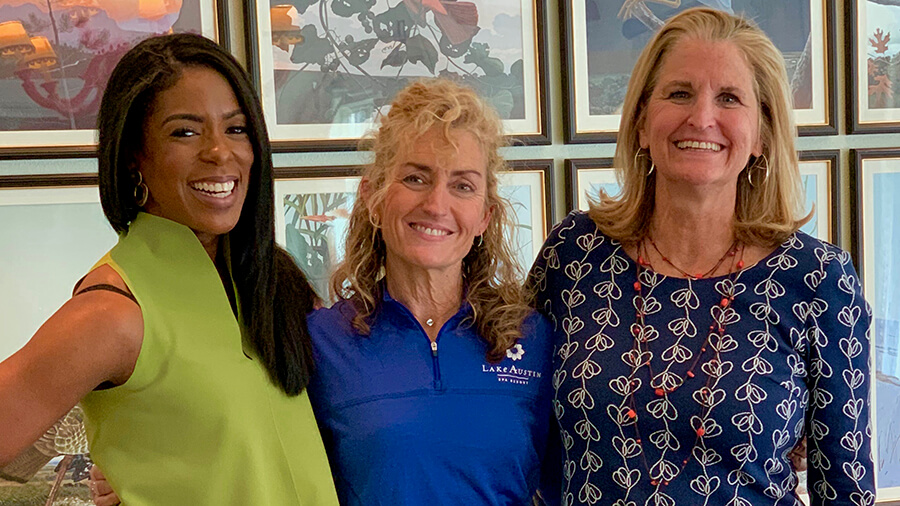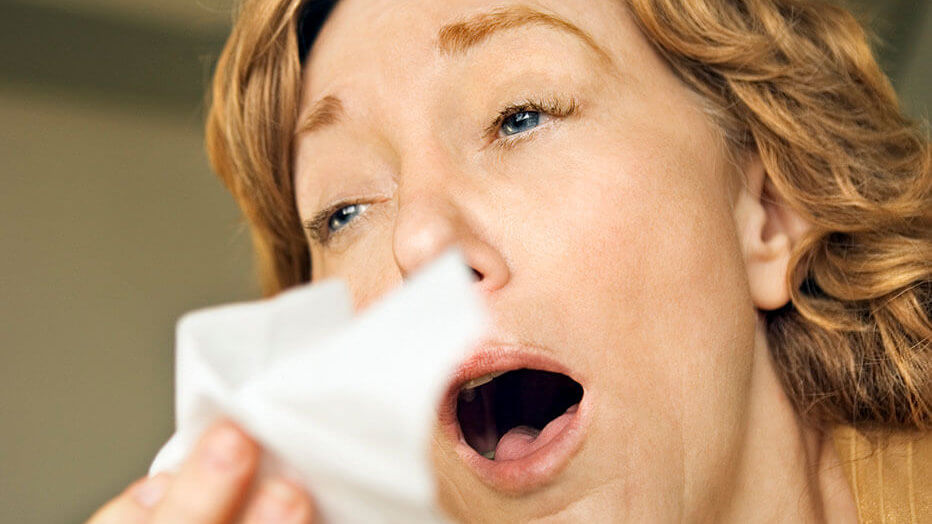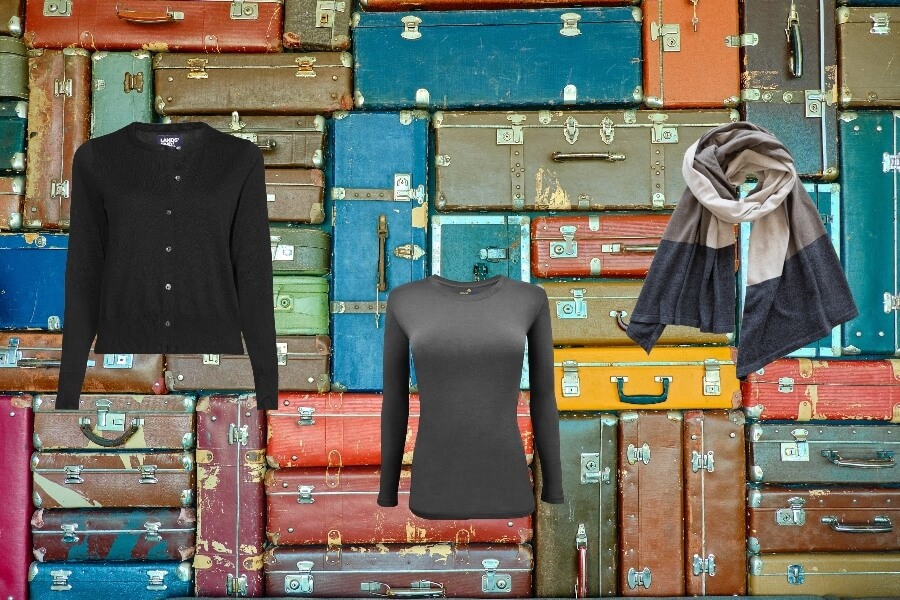We’re all about living our best life and lovin’ it—but wetting our pants? No thank you! So NextTribe recently teamed up with Poise for an informative Facebook Live with Dr. Jessica Shepherd, an ob-gyn and Poise spokesperson, and Cindy Present, director of fitness and activities at Lake Austin Spa in Austin, TX, to talk about what causes this problem and how to solve it.

Dr. Jessica Shepherd, Cindy Present and Jeannie Ralston on the set of Facebook Live. Image: Marcellina Kampa
Next Tribe’s co-founder and editor-in-chief Jeannie Ralston led the discussion and talked about how it was high time that we could discuss these issues without embarrassment. “A film about women’s periods just won an Oscar so I think we can talk about this in public finally,” she said. With one in three women experiencing light bladder leakage (LBL), it happens to many more women than just those who’ve had six kids or been riding horses all their life. “It can begin in your 20s,” says Shepherd, “but gets more common as you age, in your 40s and 50s. Our bodies are wonderfully and beautifully made, but we do change.”
Who knew there was such a thing as a pelvic physical therapist? It’s just one thing we learned during the conversation.
One key factor: “Estrogen is a powerhouse of the pelvis,” says Shepherd. “With the arrival of menopause, it’s no longer produced; the collagen of the tissues and the ability of the sphincter to prevent leakage—their function diminishes.”
Which means you can get anything from a few drops to much more as you laugh, sneeze, cough, or work out—typical situations. But you don’t want to stop socializing or exercising. Says Cindy Present, “People get embarrassed about leakage when exercising, but being active builds confidence.” LBL can be managed so you can keep up with your routine.
Read More: 7 Things I Feared About Menopause that Didn’t Happen (and One that Did!)
Stop Fearing the Sneeze
How exactly? NextTribe’s Facebook Live chat shared an array of options. Shepherd explained that Poise ultra-thin liners and other products are designed for the absorbency needed for urine—menstrual pads tend to be bulky and designed for blood, not urine, making them a less than ideal choice.
Seeing a pelvic physical therapist (yes, there is such a thing!) can help women with LBL and prolapse. This kind of therapy focuses on strengthening key muscles with Kegel exercises and special training devices like the Elvie, says Shepherd. It’s not just about holding the muscles clenched, but about flexing them to build control. In-office and surgical procedures are also possibilities.
The conversation also included loads of information on the pros and cons of hormone replacement therapy (HRT), vaginal dryness and the best lube brand, midlife weight gain—especially belly fat—and more. Check it out here for the full frank chat, and here for a discount coupon on Poise liners and a free starter pack.
Read More: Is Menopause Driving You Crazy? Like Really Crazy?
This post is sponsored by Poise.
























0 Comments